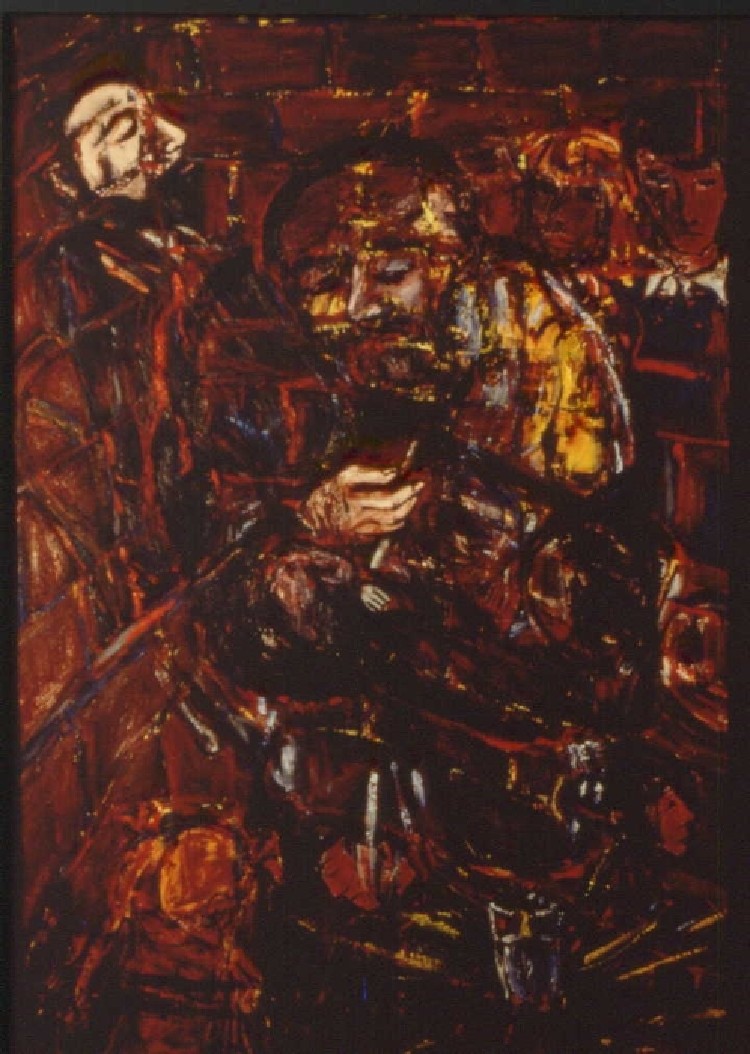This is what you say to a Jewish person who is recently bereaved – either in the days following a death or on the anniversary of the death of their mother, father, brother, sister, son or daughter. I don’t think close friends, cousins, aunts or uncles apply, no matter the sense of loss.
The reason I say this is because I have never felt comfortable with the phrase. When my parents died, people expressed these words to me – I guess, it is a useful filler when you don’t know what else to say… potentially more meaningful than, ‘I’m so sorry,’ or, ‘he was too young,’ or other such platitudes.
Interestingly, it is what the very words mean that causes me the greatest challenge – ‘I wish you long life,’ does this suggest, when your relative has died, the other person is wishing that you live a long time, now that the other is gone? No matter the quality of that remaining life, whether filled with sorrow or grief? And, what about the person that died; whether they had a long life or not, where does that enter the equation?
I can remember when I was 14 at school in Israel going with my headmaster Moshe and other classmates to visit the family of a soldier who had been killed in action – I don’t remember the circumstances. The family, in the, predominantly Yemenite village of Magdiel were in grief; I remember the men, sitting cross-legged on the floor, the father in tears – us uncomfortable, awkward; it is likely that something similar to ‘I wish you long life,’ was said in Hebrew, amidst the ululating and torn clothes, the covered mirrors and unshaven faces.
As society moves-on, death becomes more distant – we live longer, fewer of us, in the West, at least, experience death; most adults have never seen a dead body, most into middle-age, have both parents living – this wasn’t the way of the world in the past, nor was it how we evolved as a society or a people.
We have become estranged, alienated from life’s end. And with this, likely, the customs, the phrases, unspoken responses – how to grieve, how to celebrate life.
I can still recall my mum’s discomfort at my reticence to say, ‘I wish you…’ to a bereaved relative or family friend – it was weird then and I struggle now. I know that my embarrassment at relating to the old ways shouldn’t be an obstacle to tradition. After all, it is just a few simple words, but, where do you go, what do you say when your wish is to convey something deeper, more meaningful, long-lasting than what is in effect a catchphrase?
At recent funeral of a family friend, I can’t remember whether I used the phrase; I don’t recall what I said or how I said it, whether a hug, a hand-shake, slap on the back – these events are always so filled with emotion that capturing the moment is difficult.
I guess I should man-up for the next occasion when the traditional expression is called-for, after all, it is only words, and words, whether they are weighted with meaning or lost on the wind have power and significance beyond their uttering.



In Israel, we say “I share in your suffering”, which is probably about as platitudinous as wishing someone a long life. I guess it’s up to the individual to say what feels comfortable. Perhaps something more personal might suit such as, “the old bugger always beat me at Chess”…
LikeLiked by 3 people
For me, it’s not the words you say at all. It’s what your whole being says at those times, without saying a word.
LikeLiked by 3 people
Reblogged this on almondemotion and commented:
And this… my most read blog.
LikeLiked by 1 person
Never easy , some may be more comforted by a traditional ‘ formulaic ‘ response.
In words and/or gestures an acknowledgement has been made and depending on the relationship , the ‘follow-up’ in the time ahead may be just as , or more , significant.
LikeLiked by 1 person
With my upbringing in the Church of England, on the death of a family member, it is usual to say “I am sorry for your loss”. I find this a rather meaningless sort of one-size-fits-all type of expression and I never say it myself.
I prefer to actually say the person’s name or relationship i.e. “I’m sorry to hear your Mother/Father/Son/Daughter passed away last week. You must miss their presence in your life (OR whatever is meaningful to the person I am talking to).
Death is an uncomfortable situation for many people, whatever their religion, and sometimes, it is best to say nothing at all (as Mim Boyack says in the comment above).
But in general, just let the bereaved know that you are thinking of them at this difficult time and if they want to talk you are always there to listen. It may be that they are too overcome with emotion and want to cry and then a hand on their hand, or arm, or shoulder may be appropriate. Other times a hug is appropriate.
LikeLiked by 1 person
I’ve never been comfortable with it either. When it was said to me at my mum’s funeral, I felt like cursing. The last thing I wanted was a long life, or, at the time, any life – other than to have hers back. I guess it’s just a ritual whose original basis has got lost in time. Probably meant as a sort of continuation of life. Odd time to say it, though.
Next time just mumble ‘long life’ and leave out the ‘I wish you’… then maybe you can say it without the personal attached to it.
Hope you don’t mind me commenting on old posts.
LikeLiked by 1 person
Hi Val, please feel free to comment! I think I’ve stopped going to Jewish funerals, at least for the next good while; hopefully. It is funny that this pop-up on my blog as a search-term virtually every day & it makes me think; someone has died.
LikeLiked by 1 person
Unfortunately, someone’s always dying…
Reminds me that when I was younger the only times I got to see the ‘outer’ family were at Barmitzvahs, weddings or funerals. Oh and seders, sometimes.
LikeLiked by 1 person
Here is something I’ve found which explains the meaning of the phrase, which is perhaps uncomfortable to say and receive, if taken in the literal English:
“Why is the Jewish custom to wish “long life” to mourners? After losing someone dear to you, why would you want to live a long life without them? Can the blessing for long life not sometimes be a curse?
Answer:
In the original Hebrew, the blessing is, “May you have long days.” Some of us are blessed with long lives, some not. But we can all have long days.
A long day is a day full of meaning, a day spent doing good, spreading happiness and fulfilling a purpose. A day of giving and loving, learning and teaching, building spirits and lifting souls – that is a long day.
Some achieve in a short lifetime what others never get around to doing. The difference is not how you spend your life, but how you spend your day. We don’t choose how many days we live, but we can choose how we live our days. The length of our days is not measured in hours on the clock, but in beats of the heart, not in minutes, but in mitzvahs.
When we suffer the loss of a loved one, we become more sharply aware of how precious just one day can be. A wasted day is an eternity lost. And a day well spent can have an eternal impact.
Yes, there’s always tomorrow, but there’s only one today. And we have many lifetimes, but this one we only live once. Don’t wait for tomorrow. Time is short, make today a long day.”
LikeLiked by 1 person
Dear Ron,
Thank you very much for this insight and explanation which cuts to the very heart of what it means to me to be Jewish – this was the philosophy that my parents taught me as a child and which seems to get overlooked so often nowadays.
Interesting how at this time of year in the UK the days are so long, with daylight allowing more to be squeezed into 24 hours – I contrast this with the shorter days in Israel where night descends so quickly, this perhaps focuses attention.
Also funny the way in which our days become shorter as we age; childhood memories of endless summer nights vs the transience of adulthood.
thank you again!
LikeLike
Hi Rod, You are obviously a poet and I thank you for the acknowledgement. Your latest post is a reminder for me to add a little more focus into my days! In fear of mixing metaphors :-), may I wish you Happy Days!
LikeLiked by 1 person
From the sublime to the down-to-earth: Judaism is much preoccupied with uncleanness and purification. According to the Mishnah, a corpse is the ultimate unclean thing, which is why it must be buried as soon as possible. So my intuition is that mourners are wished long life as a kind of symbolic amulet against the possibility that they have been contaminated by the dead body. But I also take the point that Judaism affirms and celebrates life .There is not a word about death in the mourner’s Kaddish.
By the way, am I alone in feeling uncomfortable with the English euphemism ‘passed away’? The implication is that the person is not really dead but has merely moved elsewhere – a move that takes place without pain or difficulty either to the deceased or their mourners. I prefer being wished long life to the implication that my grief is about an imaginary loss and therefore excessive!
LikeLiked by 1 person